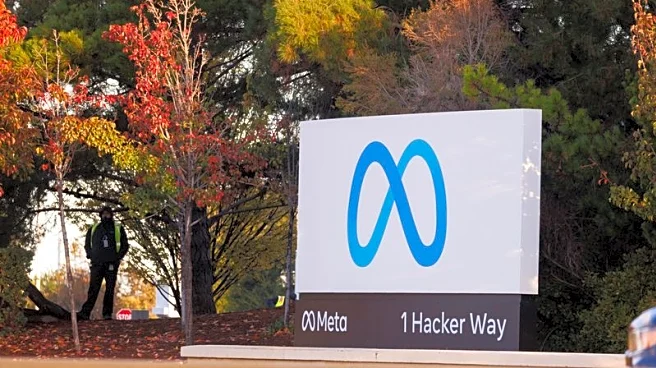What's Happening?
Rep. Frank Mrvan, a Democrat from Highland, has expressed concern over the U.S. Department of Transportation's decision to rescind federal funding for a Citgo terminal in East Chicago. In a letter to Transportation Secretary Sean Duffy, Mrvan highlighted the potential negative impact on economic opportunities and sustainability in Northwest Indiana. The funding cut threatens millions of dollars in private sector commitments and could result in the loss of union jobs. The Citgo terminal was part of a project aimed at establishing a sustainable aviation fuel blending hub, which would reduce emissions and strengthen domestic manufacturing. The project was initially supported by the FAST grant program, established under the Inflation Reduction Act of 2022, and had received over $18 million in funding. Mrvan is urging the Transportation Secretary to reconsider the decision, emphasizing the importance of the project for the region's economic and environmental goals.
Why It's Important?
The rescission of the Citgo grant has significant implications for Northwest Indiana's economy and environmental initiatives. The project was designed to enhance the region's aviation fuel infrastructure, supporting job creation and reducing carbon emissions. The loss of funding jeopardizes these objectives, potentially affecting local employment and the broader push for sustainable energy solutions. The decision also reflects broader political dynamics, as Mrvan criticizes the move as shortsighted and counterproductive to national efforts in manufacturing, technology, and infrastructure. The outcome of this funding decision could influence future federal support for similar projects, impacting stakeholders in the aviation and manufacturing sectors.
What's Next?
Rep. Mrvan has requested insight from the Department of Transportation regarding the rescission and is seeking alternative funding opportunities. The department's response and any subsequent actions will be crucial in determining the project's future. Stakeholders, including local businesses and environmental groups, may engage in advocacy to restore funding or seek new avenues for support. The situation could also prompt discussions on federal investment strategies in sustainable energy and infrastructure, potentially influencing policy decisions at the national level.










